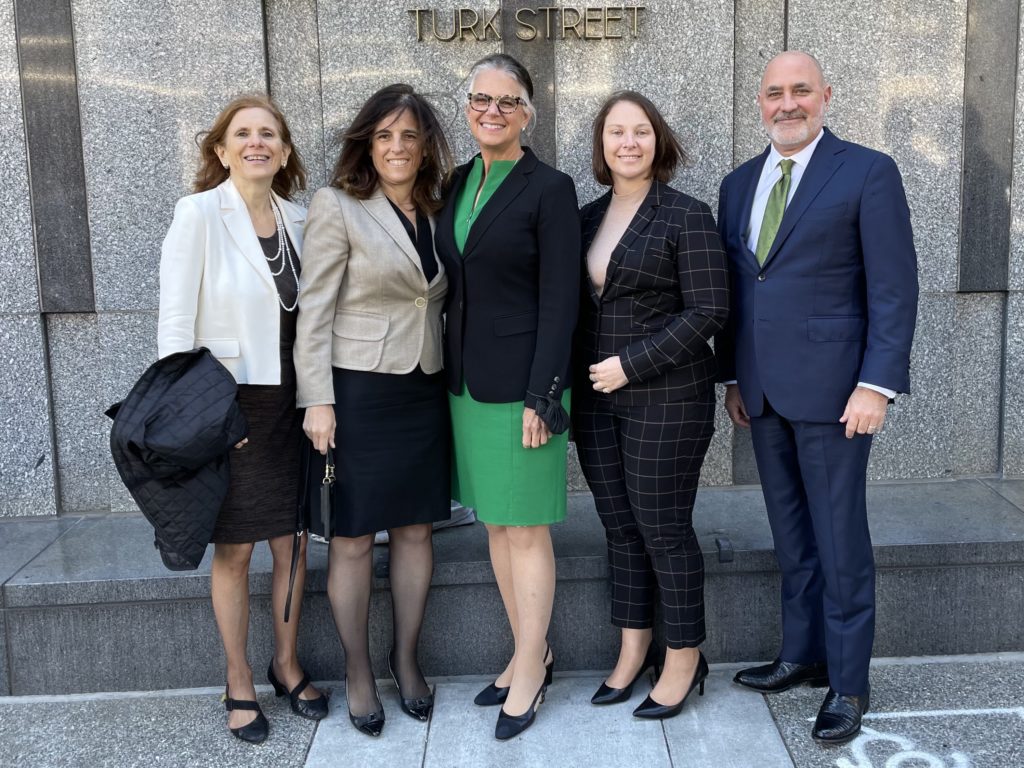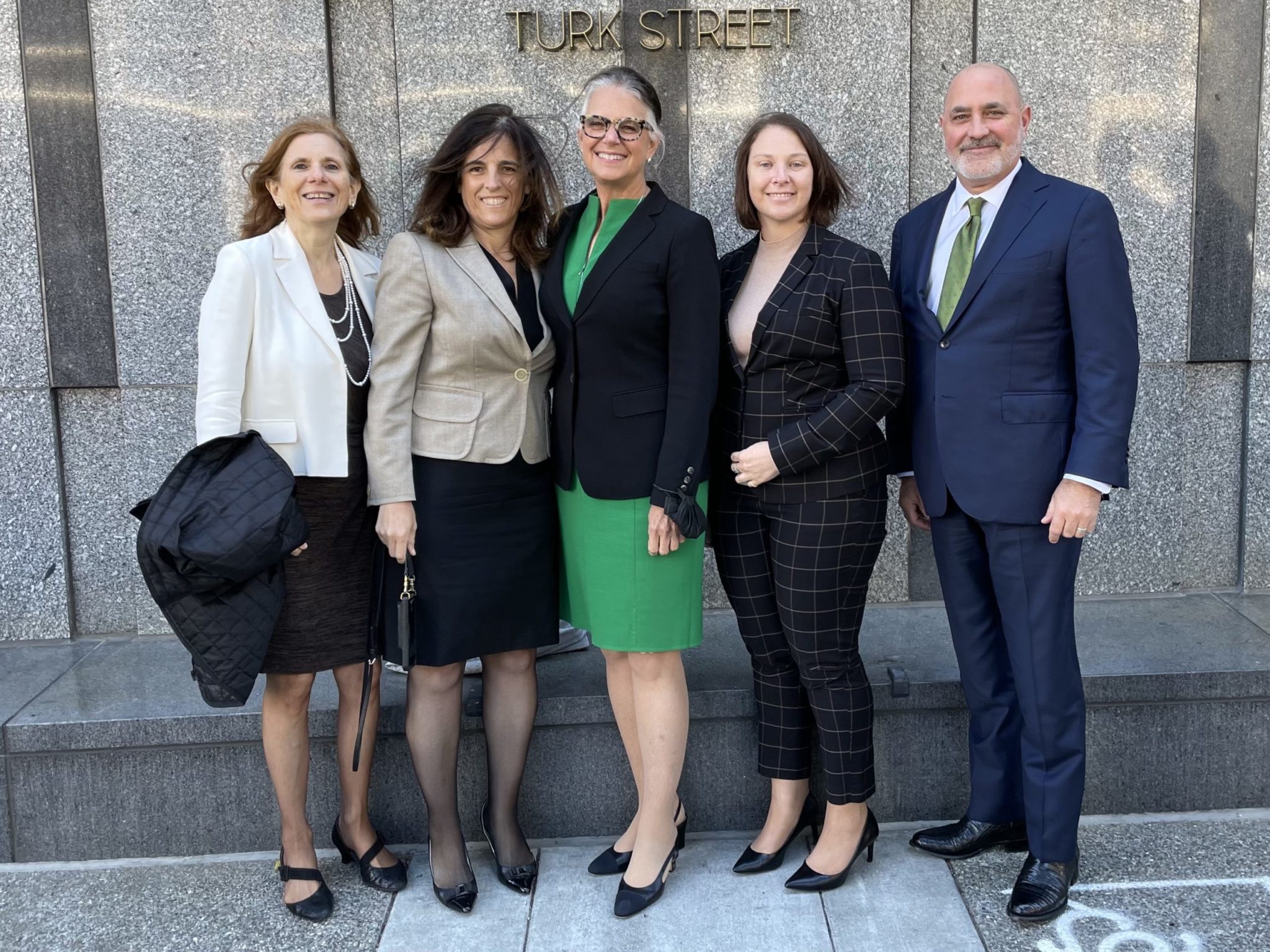Simmons Hanly Conroy Shareholders Served on the Trial Team Representing the City of San Francisco

SAN FRANCISCO — A California federal judge reached a landmark decision yesterday in the National Prescription Opiate Litigation (NPOL) that Walgreens is liable for substantially contributing to the public nuisance that caused the opioid epidemic in San Francisco. The case, brought on behalf of the People of the State of California, marks the fourth bellwether trial in the ongoing federal opioid litigation.
Judge Charles R. Bryer of the U.S. District Court for the Northern District of California found Walgreens over-dispensed opioids without proper due diligence and failed to identify, report, and halt suspicious orders as required by law. This is the first bench trial to decide in plaintiff’s favor in the national opioid litigation and the first bench trial to find Walgreens liable.
Simmons Hanly Conroy Shareholder Jayne Conroy served as a key member of the trial team, in addition to her role as co-lead of the Plaintiffs’ Executive Committee overseeing the national litigation.
“This decision reached on behalf of the plaintiff is a monumental step in demonstrating the public expectation that the decisions made by global pharmaceutical companies have consequences. When corporations prioritize profits over people’s lives, they will be held accountable,” said Conroy. “I’m honored to help represent all the communities who have been devastated by the ongoing, national opioid epidemic. This result is a win for all those devastated by opioid addiction and provides the next step in moving our communities forward toward a nationwide resolution.”
In addition, Shareholders Justin Presnal, Ellyn Hurd, Holly Nighbert and Andrea Bierstein were also instrumental members of the city’s trial team, led by City Attorney David Chiu.
“This decision gives voice to the thousands of lives lost to the opioid epidemic,” Chiu said. “This crisis did not come out of nowhere. It was created by the opioid industry, and local jurisdictions like San Francisco have had to shoulder the burden for far too long. We are grateful the Court heard our arguments and held Walgreens responsible for the damage they caused.”
Conroy issued the following statement along with NPOL Plaintiffs’ Executive Committee co-leads Paul T. Farrell Jr. of Farrell & Fuller Law LLC and Joe Rice of Motley Rice LLC and trial team leads: Aelish Baig of Robbins Geller Rudman & Dowd LLP; Richard Heimann of Lieff Cabraser Heimann & Bernstein, LLP; and Peter Mougey of Levin Papantonio:
“Today’s decision represents a monumental victory for San Francisco City and County, and an important moment for this country in the fight against the opioid epidemic. We commend the efforts of the San Francisco City Attorney David Chiu and the team of attorneys for their exceptional work on this case as noted in Judge Breyer’s opinion, ‘The aggregate evidence that Plaintiff presented at trial was not only adequate to establish Walgreens’ culpability — it was devastating.’ We also extend our thanks to the experts and key witnesses who came forward to help us shine a light on the dangerous practices that have led to the tragic impact of this crisis and ongoing loss in San Francisco.
This latest outcome against Walgreens demonstrates the unique vantage point the pharmacy chains had as they let a staggering influx of pills flow into local communities, causing a public nuisance. Today’s result means that the people of San Francisco are one step closer to receiving the long overdue relief owed for the suffering they have endured through this epidemic.
Though this is a crucial step in this battle, our work is not finished. Our focus remains on ensuring the community receives the abatement funds owed to them for the damage inflicted at the hands of Walgreens. We hope this is one of many positive outcomes that will continue to come from the federal opioid litigation as more towns, cities, and counties get their day in court to hold opioid companies accountable.”
In his decision, Judge Breyer succinctly described Walgreens’ years of misconduct that caused so much suffering in San Francisco:
“The evidence at trial established that from 2006 to 2020, Walgreens pharmacies in San Francisco dispensed hundreds of thousands of red flag opioid prescriptions without performing adequate due diligence. Tens of thousands of these prescriptions were written by doctors with suspect prescribing patterns. The evidence showed that Walgreens did not provide its pharmacists with sufficient time, staffing, or resources to perform due diligence on these prescriptions. Pharmacists experienced constant pressure to fill prescriptions as quickly as possible, and a shortage of resources to review them before dispensing.
As a result of Walgreens’ fifteen-year failure to perform adequate due diligence, Plaintiffs proved that it is more likely than not that Walgreens pharmacies dispensed large volumes of medically illegitimate opioid prescriptions that were diverted for illicit use and that substantially contributed to the opioid epidemic in San Francisco.”
These corporate practices fueled a widespread surge of opioid-related addiction and overdose in San Francisco, thereby creating an ongoing public nuisance in the region.
From 2006 to 2014, San Francisco County saw 163,645,704 opioids distributed, enough for 22 pills per person per year. Between 2015 and 2020, San Francisco saw a 478% increase in opioid-related overdose deaths, and during a typical day at the Zuckerberg San Francisco General Hospital (ZSFG) Emergency Department, approximately 25 percent of visits are opioid-related.
This trial is the fourth bellwether case in the federal opioid litigation proceeding involving more than 3,000 American cities, towns, and counties, bringing opioid manufacturers, distributors, and pharmacy chains to court for fueling the opioid epidemic. This case will serve as a test trial to help reach resolutions and seek accountability for the destruction the opioid industry caused nationwide.
In addition, the firm’s legal support staff including Jill Kraus, Stephanie Wedding, Erin Sternickle and Julie Bond provided significant support throughout the course of the case.
The next stage of trial will determine the amount Walgreens must pay San Francisco to abate the nuisance they caused. The case is City and County of San Francisco, et al., v. Purdue Pharma L.P., et al., Case No. 3:18-cv-07591-CRB.





